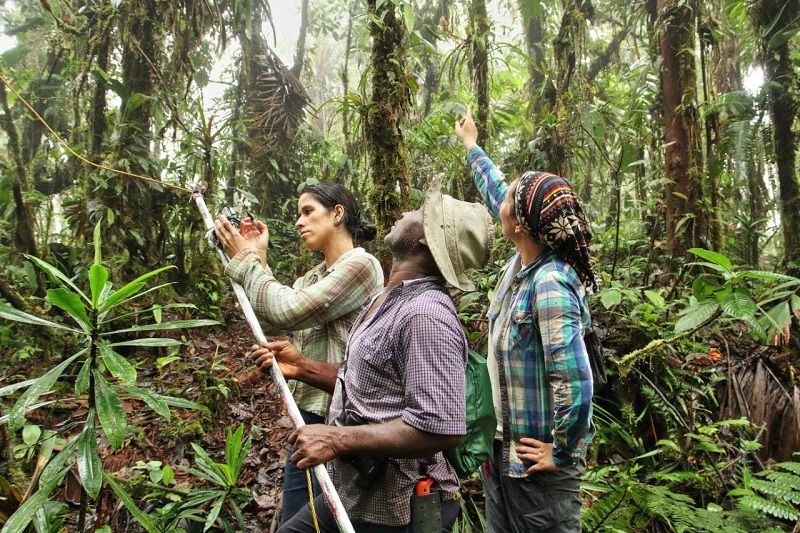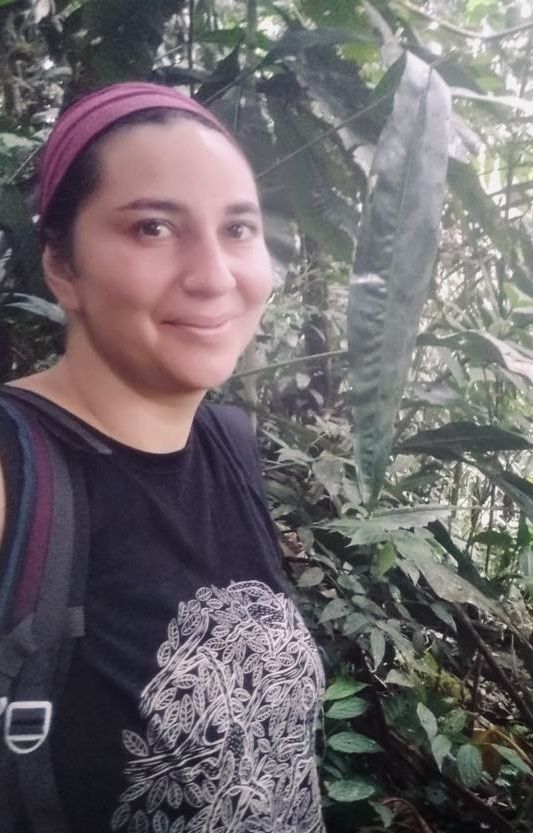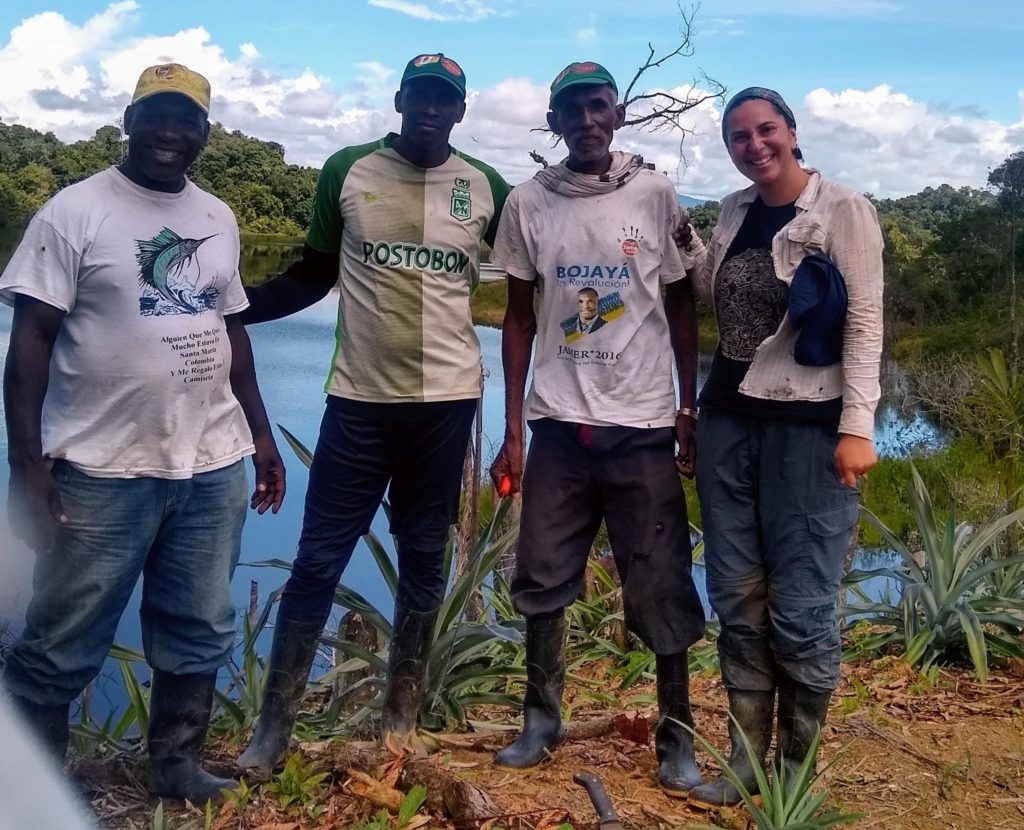Meet Alma Hernández Jaramillo: PTES project leader
In this series, we chat to the dedicated staff members, conservation partners and volunteers at PTES. We find out why each of them chose a career in wildlife conservation, what they find rewarding about their work and what they love most about what they do.
Alma Hernández Jaramillo
Research director at Neotropical Primate Conservation Colombia
Why did you decide to go into wildlife conservation?
My early conservation work was studying primate behaviour, something I’m passionate about. However, after following the same group for more than a year and a half, I experienced something that changed my focus. One day whilst I was tracking them, they started to make alarm calls. They were screaming and clearly very scared.
I decided to move to the front of the group to see what had alarmed them. I was staggered to see several hectares of fallen forest, many of the very trees the monkeys feed in were lying on the ground, in a place where they often slept overnight. It was very shocking and made me feel incredibly sad. That’s when I decided to get out of the forest and work instead with people because their decisions have so much impact on the wildlife nearby.
Has your conservation work been rewarding and if so, in what way?
In most cases, yes. Many communities are willing to listen and to take action to conserve wildlife. Some are even willing to change their behaviour. But it’s my work with children that gives me most hope. Many of them see the forest as part of their home; they want to learn from it and take care of it.

What are the main reasons for some of your greatest successes?
I don’t think I can talk about success, simply about beautiful experiences. And I think I’ve been able to work in certain places and meet and work with certain people because my passion is so big. I really enjoy doing what I do. And I try to respect the opinions of others, put prejudices aside and reach agreements with them so we can get things done.
Reflecting on your past, what has been one of your most memorable experiences so far?
Meeting and living with a native community in the northwest of my country for a few days. They opened the doors of their homes to me and I learnt and shared experiences with people aged 0 to 85 years old. It was incredible how they created ideas and solutions to problems with me from their local knowledge and stories (even with the language barrier). It was so special.
What difficulties or challenges do you face in your work and how do think you’ll overcome them?
One of the main challenges is violence, and although it cannot be tackled directly, there are many things that can be done through community work to strengthen ancestral knowledge, governance, and education. Another challenge is generating economic alternatives for communities, without undermining their ancestral ties and traditions, in order to help reduce pressure on the forest and at the same time improve their quality of life.
How can we best inspire the younger generation and what advice would you give to young conservationists just starting out?
Have hope that we can still change. There are many things that can be created, innovated, debated, and contested. And those of us working in nature conservation have one great advantage: we’re passionate about what we do, and we have to take advantage of this passion to reach decision-makers at different levels because passion is very powerful and also contagious.
What does the future hold? For you and for your species?
This is always a very difficult question to answer. For black headed spider monkeys I feel that the future is very complex. Successful conservation for the species is really high risk due to strong pressures from deforestation and hunting. However, we must have hope, so we have plans to work hard to ensure that local and regional decisions in Colombia benefit the forests and their communities. We must strengthen education which in turn will promote increased knowledge, increased governance and enable communities to make more informed decisions. This will benefit them, the forest and the wildlife that depends on it.
Find out more about Alma’s work to protect black-headed spider monkeys in Colombia here:


